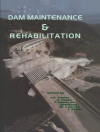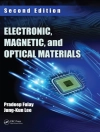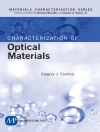This book presents the select proceedings of International Conference on Nanotechnology for Sustainable Living and Environment (ICON-NSLE 2022). It covers the latest trends in nanotechnology and its applications in various sectors such as energy, environment, food technology, and biomedicine. Various topics covered in this book are nanomaterial preparation and characterization, nanobiotechnology, nanodevices, waste to wealth, pollution abatement, renewable energy, advanced materials, sensors and portable electronics, biomedical applications, food preservation, etc. This book is useful for researchers and professionals working in the area of nanotechnology and environment sustainability.
Despre autor
Prof. Rabibrata Mukherjee is currently working as a professor at the Department of Chemical Engineering, Indian Institute of Technology Kharagpur. He obtained his B.E. (Chemical) from Jadavpur University, Kolkata, and M.Tech. (Polymers) from the Indian Institute of Technology Kharagpur. His major areas of research include thin-film instability and de-wetting, self-organized pattern formation under confinement, soft lithography, polymer blends, liquid crystal thin films, superhydrophobicity, and slippery surface, bio-scaffolds, colloidal lithography, and evaporative drying of the droplet. He worked as a design engineer in Development Consultant Limited, Kolkata, from 1994 to 1997, and a scientist at CGCRI, Kolkata, from 1997 to 2009. He has published 59 papers in respected international journals. Prof. Rabibrata Mukherjee received the SERB—STAR—Award in November 2020 and Faculty Excellence Award—2017, IIT Kharagpur, and Kaushal Kishore Memorial Award—2017, awarded by Society of Polymer Science (India), and MRSI Medal—2014, awarded by Materials Research Society of India. Currently, he is an associate editor for the bulletin of materials science since 2017.
Prof. Dr. Christoph Janiak is the university professor at Institute of Inorganic and Structural Chemistry, Heinrich Heine University, Düsseldorf, Germany. Prof. Janiak has vast experience in the preparation of metal-organic frameworks (MOFs), which are used for gas and vapor sorption and separation along with water sorption for heat transformation. These MOFs also act as precursors to electrocatalysts for water splitting. He is also into the research for synthesis of metal nanoparticles and their application in catalysis, ionic liquids, and electrocatalysis for water splitting. He is the referee of DAAD project related person exchange and the editor of various important journals, like Nano-Structures & Nano-Objects, Inorganica Chimica Acta, Chemistry Open, Crystal Engineering Communications. He has supervised 63 dissertation students and is currently supervising 17 students. He is the author of over 675 journal publications, book chapters, textbooks, and patents. His current (till February 2023) h-Index is 85 (Web of Science ISI), 88 (Scopus), and 93 (Google Scholar). The total number of citations is greater than 36900 (Google Scholar). He is the visiting professor at different reputed universities, i.e., Shenzhen Polytec and Sun-Yat Sen Univ., China, Petru Poni Institute, Iasi, Romania, Wuhan University of Technology, China, and Univ. of Angers, France. He is the fellow of the Royal Society of Chemistry (FRSC) and has been awarded the prestigious Heisenberg Fellowship, ADUC Award, Heinz-Maier-Leibnitz Award, Schering Award, Award of the Fonds of the Chemical Industry (FCI), and Fellowship of the Fonds of the Chemical Industry (FCI). He was able to fetch funding for 12 projects in the last 5 years, notable among which are DFG collaborative and individual grant, DFG Chinese-German center grant, DAAD Prime grant, and BMBF network grant.
Dr. Ziyauddin Khan is presently working as a principal research engineer in the Laboratory of Organic Electronics at Linköping University, Sweden. He received his Ph.D. in Chemistry from the Indian Institute of Technology Guwahati, India, in 2013. Thereafter, he worked at the Tata Institute of Fundamental Research, Mumbai, as a postdoctoral visiting scientist. In early 2014, he joined as a postdoctoral research associate at Ulsan National Institute of Science and Technology (UNIST), Republic of Korea. His research interest is focused on the design of novel electrolytes, nanostructured inorganic materials, and conducting polymers for applications in batteries and supercapacitors.
Dr. Somak Chatterjee is currently working as an assistant professor in the Department of Chemical Engineering, BITS Pilani, Pilani campus. He previously worked as a senior scientist, Filtrex Technologies Pvt. Ltd, and senior engineer, Tech Mahindra Technology Centre. He obtained his B.Tech. (Chem Eng.) from West Bengal University of Technology (Heritage Institute of Technology), Kolkata, and received his M.Tech. and Ph.D. from IIT Kharagpur. Dr. Somak Chatterjee’s research interests are focused in the areas of water treatment, biocides, sensors and specialized surfaces, and novel chemical formulations. He has published 17 international papers in reputed journals and 4 book chapters. He has developed 5 prototypes and has over 6 patents in the past few years. He also received many awards for his exceptional work and has taken up many institutional responsibilities at BITS Pilani.
Dr. Banasri Roy by training is a materials scientist. She completed her Ph.D. in materials engineering from Colorado School of Mines and National Renewable Energy Laboratory (NREL), USA, M.Tech. in materials engineering from IIT-Kanpur, M.Sc. in applied physics from the University of Puerto Rico, USA, B.Tech. in chemical technology and B.Sc. (with honor) in chemistry from Calcutta University. The exercise in multidisciplinary research fields helps her to understand the advanced theory of characterization and data analysis. Dr. Roy has vast expertise in materials synthesis, analytical characterization, and data analysis. She has extensively worked on the development of nanocatalyst systems for renewable energy production from ethanol and biomasses. Her current focus is on the utilization of waste (agricultural and others) to convert to energy sources and other value-added chemicals. She also works on the development of nanoparticles for environmental pollution control and other applications. Her research interest includes surface modification of different biomaterials to improve biocompatibility. She is one of the SERB-POWER fellowship recipients of 2021 and was awarded the ULAM-NAWA fellowship by the Polish National Agency for Academic Exchange. Two Ph.D. and 14 M.E. students completed their thesis successfully under her guidance, and currently, she is supervising three Ph.D. and two M.E. students. She authored and co-authored 45 peer-reviewed papers in different international journals, achieving around 1280 citations, 28 i-index, and 19 h-index. Currently, she is affiliated with the chemical engineering department of BITS- Pilani, Pilani campus.
Dr. Sarbani Ghosh is currently an assistant professor in the department of chemical engineering, BITS Pilani, Pilani campus. Her previous research positions include working as a principal research engineer and postdoctoral researcher at Linköping University, national postdoctoral fellow, and project engineer at IIT-Kanpur. She obtained her B.Tech. (Chem Eng.) from the West Bengal University of Tech- nology, M.Tech. (Chem Eng.) from the University of Calcutta, and Ph.D. from IIT Kharagpur. Dr. Sarbani Ghosh’s major areas of research interest are in the field of moleculardynamics simulation, nanomaterials, electronic structure calculations, and morphology of polymers. Dr. Sarbani Ghosh is also proficient in many software including Gaussian, MATLAB, LAMMPS, and Schrödinger: Desmond. She has published over 14 international papers in reputed journals along with 7 conference papers and has 1 patent under her name. She is also the recipient of the award of Teaching Assistantship under TEQIP Phase II.
Dr. Krishna Etika is currently working as an assistant professor at the Department of Chemical Engineering, Birla Institute of Technology and Science, Pilani. He obtained his B.Tech (Chemical) from Sri Venkateswara University, Tirupati, and M.Tech. (Materials) from the Indian Institute of Technology, Kharagpur. His major areas of research include multifunctional materials, nanomaterials, inline sensors, microporous PVC films, and hybrid epoxy nanocomposites. He worked at CEAT Ltd, Mumbai. As a development process engineer in Intel Corporation, USA, he served as both the head of Chemical Engineering and dean, academics. He has published 35 papers in respected international journals including conference papers. Dr. Krishna Chaitanya Etika received the Divisional Award, Intel Corporation, USA, Thermoset Polymer Research Award, TRFA, USA, and Prof. Y. Nayudamma Memorial Award, AP Akademi of Sciences, India.












